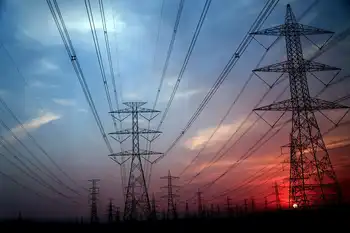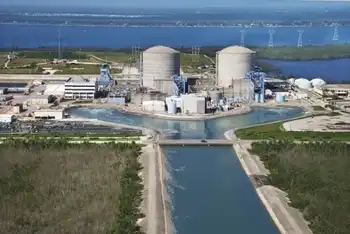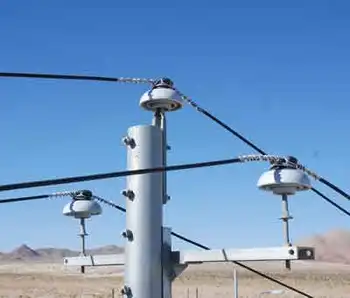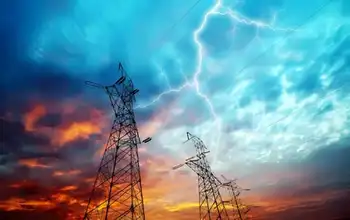UK homes can become virtual power plants to avoid outages

NFPA 70e Training - Arc Flash
Our customized live online or in‑person group training can be delivered to your staff at your location.

- Live Online
- 6 hours Instructor-led
- Group Training Available
Demand Flexibility Service rewards households and businesses for shifting peak-time electricity use, enhancing grid balancing, energy security, and net zero goals with ESO and Ofgem support, virtual power plants, and 2GW capacity this winter.
Key Points
A grid program paying homes and businesses to shift peak demand, boosting energy security and lowering winter costs.
✅ Pays £3,000/MWh for reduced peak-time usage
✅ Targets at least 2GW via virtual power plants
✅ Rolled out by suppliers with Ofgem and ESO
This month we published our analysis of the British electricity system this winter. Our message is clear: in the base case our analysis indicates that supply margins are expected to be adequate, however this winter will undoubtedly be challenging, with high winter energy costs adding pressure. Therefore, all of us in the electricity system operator (ESO) are working round the clock to manage the system, ensure the flow of energy and do our bit to keep costs down for consumers.
One of the tools we have developed is the demand flexibility service, designed to complement efforts to end the link between gas and electricity prices and reduce bills. From November, this new capability will reward homes and businesses for shifting their electricity consumption at peak times. And we are working with the government, businesses and energy providers to encourage as high a level of take-up as possible. We are confident this innovative approach can provide at least 2 gigawatts of power – about a million homes’ worth.
What began as an initiative to help achieve net zero and keep costs down is also proving to be an important tool in ensuring Britain’s energy security, alongside the Energy Security Bill progressing into law.
We are particularly keen to get businesses involved right across Britain. When the Guardian first reported on this service we had calls from businesses ranging from multinationals to an owner of a fish and chip shop asking how they could do their bit and get signed up.
We can now confirm our proposals for how much people and businesses can be paid for shifting their electricity use outside peak times. We anticipate paying a rate of £3,000 per megawatt hour, reflecting the dynamics of UK natural gas and electricity markets today. Businesses and homes can become virtual power plants and, crucially, get paid like one too. For a consumer that could mean a typical household could save approximately £100, and industrial and commercial businesses with larger energy usage could save multiples of this.
We are working with Ofgem to get this scheme launched in November and for it to be rolled out through energy suppliers. If you are interested in participating, or understanding what you could get paid, please contact your energy supplier.
Innovations such as these have never mattered more. Vladimir Putin’s unlawful aggression means we are facing unprecedented energy market volatility, across the continent where Europe’s worst energy nightmare is becoming reality, and pressures on energy supplies this winter.
As a result of Russia’s war in Ukraine, European gas is scarce and prices are high, prompting Europe to weigh emergency measures to limit electricity prices amid the crisis. Alongside this, France’s nuclear fleet has experienced a higher number of outages than expected. Energy shortages in Europe could have knock-on implications for energy supply in Britain.
We have put in place additional contingency arrangements for this winter. For example, the ability to call on generators to fire-up emergency coal units, even as the crisis is a wake-up call to ditch fossil fuels for many, giving Britain 2GW of additional capacity.
We need to be clear, it is possible that without these measures supply could be interrupted for some customers for limited periods of time. This could eventually force us to initiate a temporary rota of planned electricity outages, meaning that some customers could be without power for up to three hours at a time through a process called the electricity supply emergency code (ESEC).
Under the ESEC process we would advise the public the day before any disconnections. We are working with government and industry on planning for this so that the message can be spread across all communities as quickly and accurately as possible. This would include press conferences, social media campaigns, and working with influencers in different communities.











